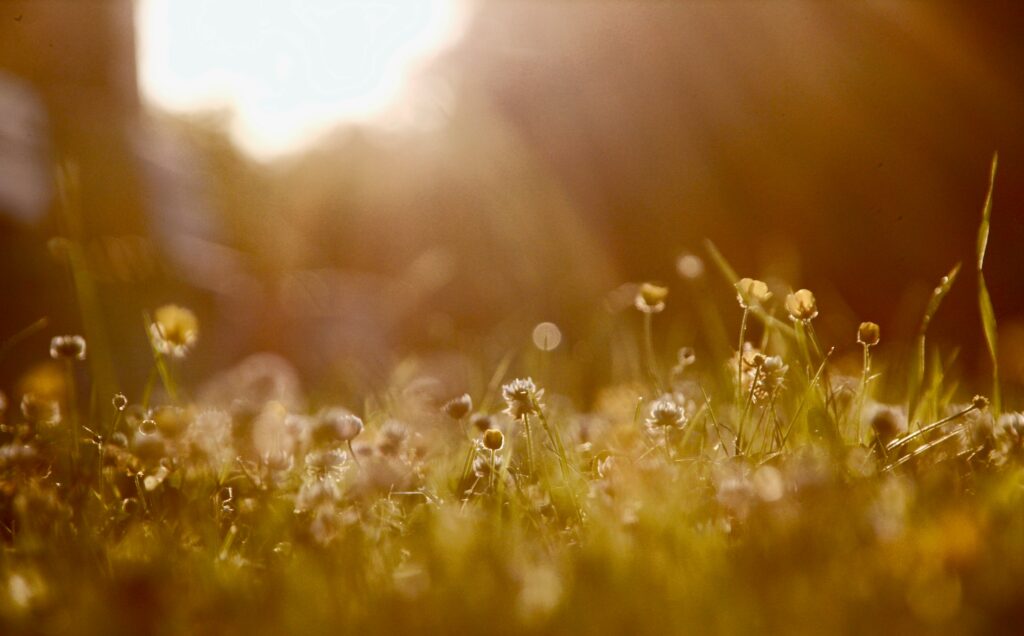“Weeds are flowers too, once you get to know them”
— A. A. Milne; author of Winnie-the-Pooh
As summer approaches, many businesses and destinations are busy preparing for the seasonal influx of visitors. Across the country, tourism stakeholders are tending to the land, pruning trees, and planting flowers to create an inviting and visually appealing environment for guests.
But before you pull up those pesky weeds, take a moment to consider their value. Those “weeds” may play an important role in maintaining ecological balance or hold surprising beauty.
Because after all, “Weeds are flowers too, once you get to know them”.
This important lesson encourages us to re-evaluate how we perceive our environment. Whether you manage a park or plaza, the landscaping around your building, or even a few garden containers, there is great value in following Milne’s advice. It is important to look beyond the appearance of “weeds” and find their natural value to the world.
Wildflowers play an important role in sustaining local ecosystems. Wildflowers provide food and shelter to pollinating insects and support many animal habitats. According to Dr. Eric Lyons from the University of Guelph, one of the best ways to reduce the negative ecological impacts of the built landscape is to create wildflower zones or corridors with pollinator-friendly grasses, shrubs, and native plants. Further, wildflowers and native plants are often more resilient requiring less watering and maintenance.
The diverse benefits of wildflowers are difficult to summarize in one article. Some may view “weeds” as a nuisance, undeserving of space in their limited gardens. Others may be unaware of the role wildflowers play for pollinators and in supporting ecosystem resilience. I am not afraid to admit that I was once ignorant to the benefits of wildflowers; but I have changed and with my newfound perspective, I hope that others can learn from my experience too.
Back in the summer of 2022, I was living in the paese of Montespertoli, a small Italian village tucked away in the Tuscan countryside. One afternoon I went to a community orto to help prepare the garden for the season’s plantings. When I arrived, I was amazed by the beautiful, strongly scented flowers that grew throughout the garden. “Che profumo! Bellissimi fiori! What are these flowers?”, I asked the sun-ripened gardener.
Expecting a romantic, exotic answer, the local gardener instead laughed. “Those are not flowers”, he responded, “they are weeds! Viene ragazzo, help me clear some space”. The gardener sent me to work preparing the soil of a small corner of the orto. As I began to pull the weeds surrounding the perimeter of the vegetable bed, the gardener ran over; “Basta! Basta! Stop!”, he exclaimed with wild waving arms and hand signs showing that he was clearly upset. After calming down, the gardener shared, “Moments ago you said these flowers were bellissimi and that they smelled delightful. You like them, no? Why are you pulling so many up then? They bring you joy. They bring the birds and the bees joy. They bring the garden joy.”
Later that year when I returned to Canada and found myself preparing my own small garden, I realized I had learned an important lesson from that experience in the Italian countryside:
to approach my own home, community, and environment (native wildflowers) with the same curiosity and excitement of a tourist.
Following this lesson, not only do I now appreciate wildflowers for their important ecological purpose, but also for their own unique beauty.
You too can generate interest and conversations in the role wildflowers play, and how they are an easy step to improving the sustainability of our ecosystems and regions. Explore the resources below to help bring some “wildness” to your tourism business, destination or home.
Learn, Share, Grow:
Watch: 7 Ways to USE Weeds in Your Garden – Epic Gardening
Listen: Ep 60: Sustainable Landscaping with Dr. Sharon Hall (Arizona State University)
Plan: Fire Resistant Landscaping – Vail Fire & Emergency Services
Report: Report Invasives App – Invasive Species Council of British Columbia
Visit: UBC Botanical Garden

Field of Weeds, photo by Adam Kunis
Written by Adam Kunis, Sustainable Tourism Specialist

